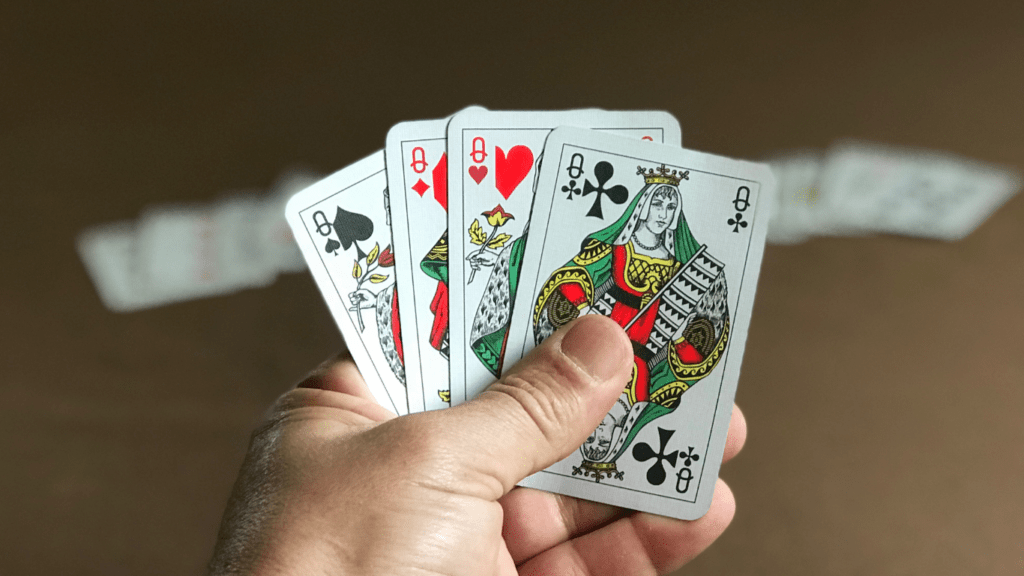Understanding Poker Tournaments
Winning at poker tournaments requires familiarity with their structure and unique characteristics. Understanding these elements is essential to crafting effective strategies.
Types of Poker Tournaments
Several types of poker tournaments exist, each offering distinct challenges:
- Freezeouts: Players start with a fixed amount of chips and play until one player has all the chips.
- Rebuys and Add-ons: Players can buy more chips during a specified period; add-ons are typically available at the end of the rebuy period.
- Shootouts: Players must win at their table to advance to the next round.
- Sit-and-Go: Matches begin once a pre-determined number of participants register.
- Multi-table Tournaments (MTTs): Large fields with multiple tables, progressing to a single winner.
Tournament Phases and Payout Structures
Poker tournaments consist of distinct phases, each requiring different strategies:
- Early Phase: Accumulate chips cautiously while identifying weaker players. Protect your stack, avoid risky plays.
- Middle Phase: Increase aggression to build your stack. Take advantage of tight players.
- Bubble Phase: Play tight near the money line. Avoid unnecessary risks, capitalizing on players trying to secure payouts.
- Late Phase: Adopt an aggressive stance. Capitalize on smaller stacks, push around the blinds.
- Final Table: Focus on pay jumps. Adapt to opponents’ play styles, aim for the top spots.
Payout structures vary by tournament type but generally reward a percentage of the top finishers. For example, a typical MTT might pay the top 10-15% of the field, with the largest share going to the top three. Understanding these structures helps in managing risk and maximizing profits.
Key Strategies for Early Stages

In the early stages of a poker tournament, establishing a solid foundation is crucial. Focusing on calculated, strategic play sets the tone for the rest of the tournament.
Tight-Aggressive Play
Adopting a tight-aggressive (TAG) play involves being selective with starting hands and playing those hands aggressively. This approach conserves chips and only commits a significant amount to strong hands. For example, play premium hands like Aces, Kings, Queens, and A-K aggressively to maximize their value and put pressure on opponents. This strategy also capitalizes on the generally looser play of other participants in the early stages, allowing for chip accumulation without unnecessary risk.
Bankroll Management
Effective bankroll management ensures longevity in a tournament. Allocate only a small portion of your total chips to each hand, avoiding large bets or risky plays that could jeopardize your stack early on. For instance, risking 1-2% of your total chips on a speculative hand maintains your ability to recover from losses. Track your chip count relative to the blinds consistently to make informed decisions about when and how to play aggressively or conservatively. Proper management keeps you in the game longer and increases your chances of reaching the later stages where strategic depth becomes essential.
Mid-Game Tactics
Navigating the mid-game phase of a poker tournament involves adapting strategies to maintain and increase your chip stack while exploiting opponents’ weaknesses. Employing advanced tactics becomes crucial as blinds increase and the field narrows.
Reading Opponents
Understanding opponents’ tendencies gives a significant advantage. Noticing patterns, such as frequent bluffs or passive play, helps predict their actions. For example, a player who consistently raises pre-flop likely has a strong range, while one who calls frequently but rarely raises may be more speculative. Keep mental or written notes on players’ behavior at the table to make informed decisions.
Position Play
Maximizing positional advantage remains vital in the mid-game. Acting last in a betting round offers more information on opponents’ intentions. This helps in making more accurate bets and raises, and in orchestrating bluffs. Prioritize playing stronger hands in early positions and widen your range in late positions to exploit weaker opponents. For instance, playing hands like suited connectors more aggressively on the button increases chances for profitable bluffs or value bets.
Chip Accumulation
Aggressively seeking opportunities to increase your chip stack is essential. Target smaller stacks to force folds or win pots without showdowns. Utilize a tight-aggressive approach, combining selective hand entries with assertive betting to accumulate chips efficiently. Look for spots where opponents are likely to fold to pressure, leveraging your stack to bully smaller stacks. Blind stealing and re-stealing also become effective strategies, especially against tight players who defend blinds less frequently.
Maintaining a balance between aggression and caution ensures continued success through the mid-game, setting a strong stage for the final phases of the tournament.
Endgame Approaches
In the deep stages of a poker tournament, fine-tuning strategies to manage varying stack sizes and exploiting opportunities becomes essential. Let’s explore some critical tactics.
Short-Stack Strategy
Short stacks require precise play to maximize survival chances. When holding a stack of 10 big blinds or less, it’s crucial to adopt a push-or-fold strategy. All-in actions increase fold equity, especially when facing cautious opponents. Avoid limping or calling raises since these moves diminish stack utility. Evaluation of opponent tendencies and position on the table guide timing for shoving pre-flop.
Stealing Blinds and Antes
The pot frequently comprises significant blinds and antes, presenting lucrative opportunities for chip accumulation. Aggressive play from late positions like the cutoff and button enhances steal success rates. When targeting blinds, consider factors like opponents’ stack sizes, tendencies, and table dynamics. Mixing in occasional steals with weaker hands keeps your plays unpredictable, compelling opponents to make mistakes.
Adjusting to the Final Table
Final table dynamics shift, necessitating adaptive strategies. Pay close attention to ICM (Independent Chip Model) considerations, as pay jumps influence decision-making. Larger stacks can apply pressure by exploiting shorter stacks’ risk aversion. Conversely, short stacks must carefully select spots to push, avoiding confrontation with big stacks unless hands warrant it. Observing opponents’ playing patterns helps identify and capitalize on strategic adjustments.
Psychological Aspects
Winning at poker tournaments involves mastering the game’s psychological aspects. Understanding and leveraging psychology can give players a significant edge.
Keeping Composure
Staying calm and composed is essential for long-term success. Emotions directly influence decision-making; players make better choices when they manage emotions. Avoid reacting impulsively to losses; focus on the next hand. Practice meditation or deep breathing techniques before playing. These exercises help control stress levels and maintain a clear mind.
Bluffing and Deception
Bluffing is a fundamental strategy in poker. Effective bluffing requires timing and confidence. Observe opponents’ tendencies—tighter players fold more readily, while loose players might call bluffs frequently. Bluff selectively; overusing it makes a player predictable. Combine semi-bluffs with drawing hands to increase success rates and build a deceptive image.
Managing Tilt
Tilt can devastate a player’s game. Emotional agitation often leads to irrational decisions and significant losses. Recognize the onset of tilt symptoms, such as frustration or anger. When sensing tilt, take a break from the table. Refocus and reset your mindset before continuing. Establish a routine to reset after significant losses or wins to maintain equilibrium and avoid tilt-induced errors.
Common Mistakes to Avoid
Avoiding common errors is crucial for success in poker tournaments. Here are some key mistakes to watch out for and strategies to avoid them.
Overplaying Weak Hands
Many players lose chips by overplaying weak hands. It’s tempting to join more hands than advisable, especially with marginal holdings. For example, hands like low pairs or unsuited connectors often look appealing but rarely win big pots. Stick to stronger hands, especially in early stages, to conserve your stack and gain an edge.
Neglecting Position
Position is a fundamental aspect often overlooked. Acting earlier in a hand means less information, putting players at a disadvantage. For instance, playing aggressively from early position without premium hands risks unnecessary chip loss. Use position strategically by playing tighter in early positions and more aggressively when in late positions to capitalize on additional information.
Failing to Adapt
Poker is dynamic, requiring continuous adaptation to changing circumstances. Some players stick to a single strategy, ignoring shifts in table dynamics. This rigidity can be costly. Adapt by observing opponents and adjusting your tactics accordingly, whether tightening up against aggressive players or exploiting passive ones. Recognize and react to the evolving play to maximize your success.




